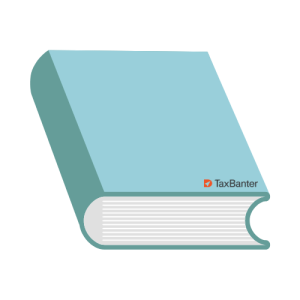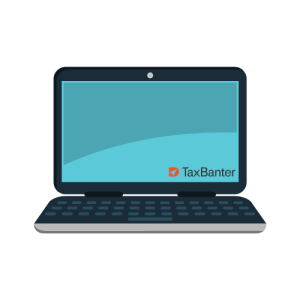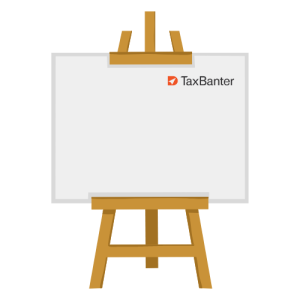The ATO has announced its three key focus areas for Tax Time 2023 for individuals:
1. Rental property deductions
2. Work-related expenses
3. Capital gains tax.
Rental property deductions
ATO data shows that 9 in 10 rental property owners are getting their tax return wrong. Common errors include rental income being omitted, overclaiming expenses and claiming for improvements to properties held for private use.
Around 87 per cent of individual rental property owners use a registered tax agent to prepare their income tax returns. While the ATO has not stated what proportion of identified errors were found in agent-prepared returns, in late 2019 the ATO claimed that incorrect claims for work-related and rental property expenses were more prevalent in agent-prepared returns than in self-prepared returns.
This Tax Time, the ATO is particularly focused on interest expenses and the correct apportionment of loan interest expenses where part of the loan was used for private purposes, or the loan was refinanced with some private purpose.
 Reference
Reference
The ATO has released its 2023 tax time toolkit for investors, which includes a suite of fact sheets for rental property owners.
TaxBanter’s Tips — claiming rental property deductions
- Expenses are only deductible to the extent that they relate to the period when the property is genuinely available for rent. For example, utilities, mortgage insurance and house insurance expenses are not deductible where they relate to a period of private use. However expenses are fully deductible if they solely relate to the derivation of rental income, e.g. fees paid to a rental property agent or to a short-term accommodation platform.
- Where the taxpayer is renting out a part of their home, e.g. a spare room, rather than a separate property, the ATO is of the view that expenses can only be claimed for the days when the room is actually rented out. When the room is not being rented out, the ATO treats it as being used privately as part of the taxpayer’s home.
- If the taxpayer is not carrying on a business in relation to the rental activity, they may be able to immediately claim the cost of a depreciating asset costing $300 or less in the year incurred.
- Travel expenses to inspect, maintain or collect rent for a rental property are not deductible.
Work-related expenses
There have been some changes to how certain working from home deductions are calculated for 2023 (see below). In addition, a lot of people have returned to working at the office compared to last year. For these reasons, the ATO warns taxpayers not to be ‘tempted to just copy and paste’ their prior year’s claims.
This Tax Time, the ATO is particularly focused on ensuring taxpayers understand the changes to the fixed-rate method for claiming additional running expenses and are able to substantiate their claims.
The revised fixed-rate method
There are two categories of working from home expense deductions: running expenses and occupancy expenses. In calculating a deduction for additional running expenses incurred as a result of working from home, the ATO allows taxpayers to choose from the fixed-rate method and the actual cost method (a temporary shortcut method was also available to cover the period when many employees worked from home during the pandemic).
Until 30 June 2022, the fixed-rate method allowed a deduction of 52 cents per hour for each hour a taxpayer worked from home. From 1 July 2022, the rate has changed to 67 cents per hour, and the list of expenses covered by the fixed rate has changed.
 Reference
Reference
See Banter Blog article The ATO’s new working from home deduction rules for an explanation of the revised fixed-rate method from 1 July 2022.
See the ATO’s webpage for information about the 2019–20 tax gap for individuals not in business population — with incorrect deductions for work-related and rental property expenses forming a significant part of the gap.
TaxBanter’s Tips — work-related deductions
- Under the revised fixed-rate method, from 2023 taxpayers cannot claim separate deductions for mobile phone expenses and internet expenses anymore.
- For taxpayers using the revised fixed-rate method, the ATO will allow them to keep a record which is representative of the hours they worked from home from 1 July 2022 to 28 February 2023 as a transitional concession. However, from 1 March 2023, the taxpayer must keep a record of the total number of hours they worked from home. The ATO will not accept an estimate based on a shorter period of time.
- Generally the costs of travelling between home and work are not deductible — performing work-related tasks at home or whilst travelling as a matter of choice or convenience does not convert the travel to being part of the employment. Exceptions apply and some home-to-work travel is deductible.
- The cost of conventional clothing is not deductible just because the employer requires or expects the taxpayer to wear it.
- The $250 non-deductible threshold for work-related self-education expenses has been removed from 1 July 2022.
- An employee cannot claim depreciation on an asset in relation to which the employer is eligible for the work-related item FBT exemption (e.g. laptops and tablets).
CGT considerations
The ATO is reminding taxpayers to consider the CGT implications of each asset they dispose of and the importance of record keeping.
For example, while generally a taxpayer’s main residence is exempt from CGT, if they had used their home to produce income — e.g. through Airbnb or running a home-based business — then CGT may be payable.
Further, the ATO can and does detect undeclared capital gains.
TaxBanter’s Tips — calculating and disclosing capital gains
- The extent to which CGT is payable on a capital gain from the sale of a taxpayer’s main residence depends on both the amount of time that the property was used for income-producing purposes and the proportion of the property that was used for those purposes. The proportion of a capital gain that is taxable is broadly related to the proportion of mortgage interest that has been deductible.
- If a taxpayer acquires cryptocurrency as an investment asset, CGT will apply to a gain on sale unless the taxpayer can substantiate that it is a personal use asset that is eligible for CGT exemption.
- While the general rule is that CGT records must be kept for five years after the disposal of an asset, the substantiation of a calculation of a capital gain or capital loss — or the categorisation of a CGT asset as a pre-CGT asset — may require information dating back to the acquisition of the asset. Further, the five-year period is extended where a capital loss is carried forward and offset in a later year.
- Keeping an asset register may allow the taxpayer to discard some records which would otherwise need to be kept for years. Once details have been entered into the register and the register has been certified by a registered tax agent or other approved person, the taxpayer will only need to keep the documents for five years from the date the register is certified.
- The ATO is undertaking a number of data-matching programs through which it can detect undeclared or understated capital gains. These programs include:
- Crypto assets 2014–15 to 2022–23
- Lifestyle assets 2013–14 to 2022–23
- Property management — 2018–19 to 2022–23
- Real property transactions — 20 September 1985 to 2016–17
- Residential investment property loan — 2021–22 to 2025–26
- Share transactions — 20 September 1985 to 2017–18.
Further resources and training
Join us at the beginning of each month as we review the current tax landscape. Our monthly Online Tax Updates and Public Sessions are excellent and cost effective options to stay on top of your CPD requirements. We present these monthly online, and also offer face-to-face Public Sessions at 17 locations across Australia.
 Join us online
Join us online
Upcoming webinars >
 Register for a workshop
Register for a workshop
Upcoming workshops by state >
 Personalised training options
Personalised training options
We can also present these Updates at your firm or through a private online session, with content tailored to your client base. Call our BDM Caitlin Bowditch at 0413 955 686 to have a chat about your specific needs and how we can assist.
Learn more about in-house training >
Our mission is to provide flexible, practical and modern tax training across Australia – you can view all of our services by clicking here.
For further resources check out our February 2023 Monthly Special Topic recording on Main Residence Exemption:

 Reference
Reference Reference
Reference![]() Join us online
Join us online![]() Register for a workshop
Register for a workshop